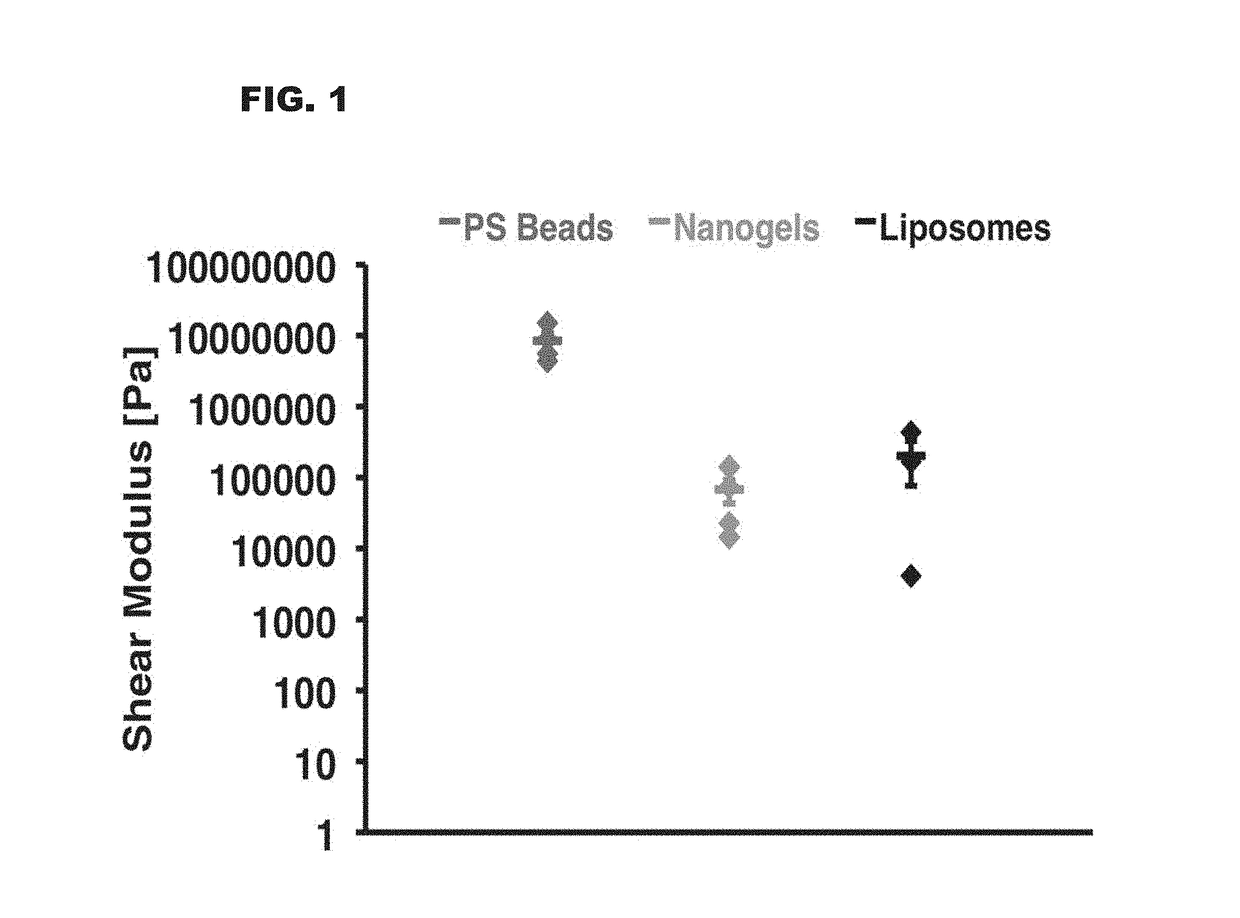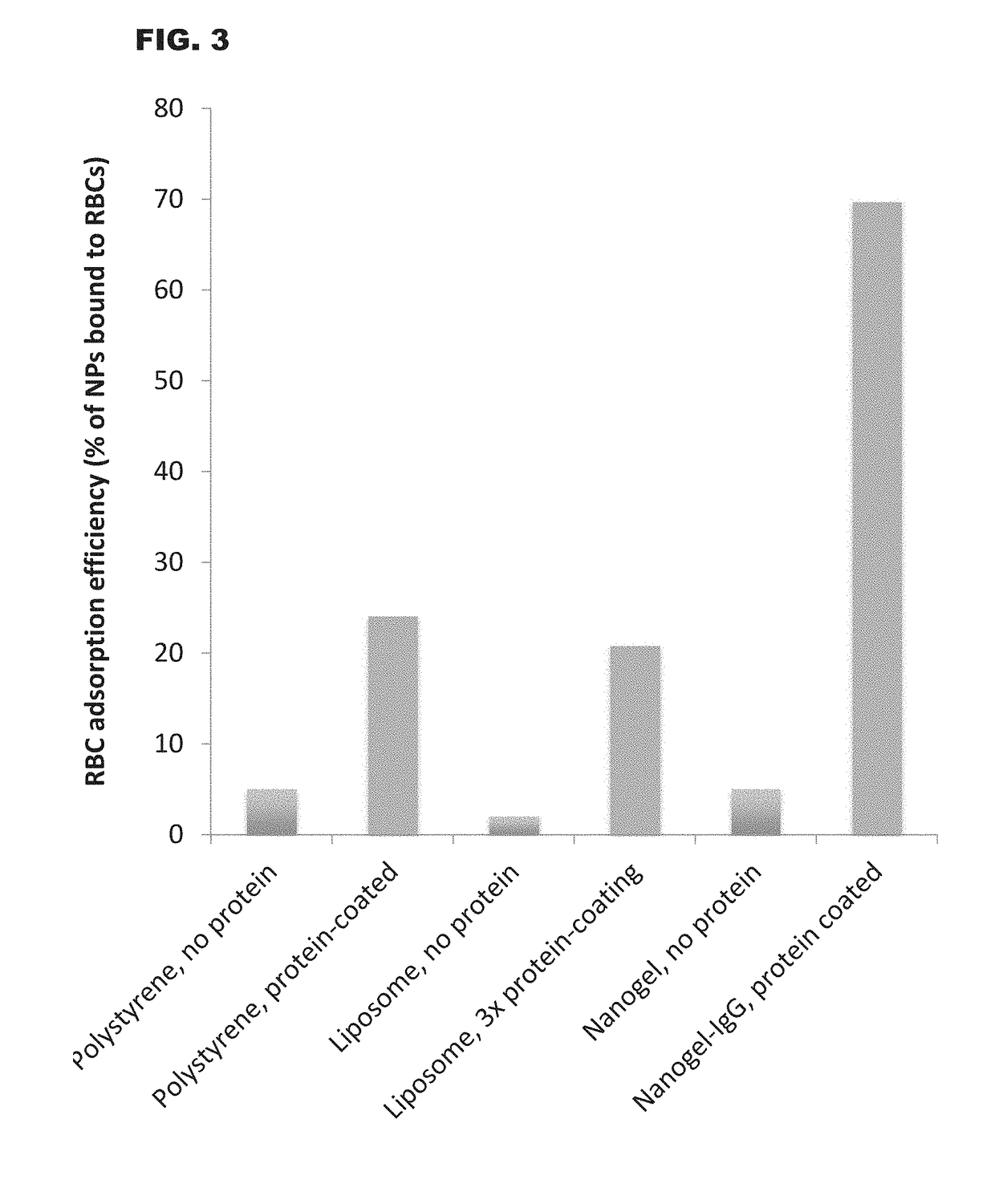Methods and compositions for drug delivery
- Summary
- Abstract
- Description
- Claims
- Application Information
AI Technical Summary
Benefits of technology
Problems solved by technology
Method used
Image
Examples
example 1
Methods and Materials
[0093]Animal and human study protocols. All animal studies were carried out in strict accordance with Guide for the Care and Use of Laboratory Animals as adopted by National Institute of Health and approved by University of Pennsylvania Institutional Animal Care and Use Committee (IACUC). All studies involving human subjects were approved by the University of Pennsylvania Institutional Review Board. Written informed consent from donors was obtained for the use of blood samples and blood samples were destroyed after the study. Names and personal information about individual participants were not taken. The ex vivo human lungs were donated from the local organ procurement agency, Gift of Life, after they had deteremined the lungs were not suitable for transplantation into a recipient, and therefore would have been disposed of if they were not used for our study.
[0094]Synthesis of and conjugation of proteins to NCs. The synthesis, characterization, radiolabeling, a...
example 2
Polystyrene Beads are Much Harder Than Liposomes and Nanogels
[0102]Quartz crystal microbalance measurements of shear modulus for polystyrene beads, lysozyme-dextran nanogels, and liposomes were performed. Experiments were performed with aqueous nanoparticle solutions (0.5 mg / mL) flowing over a complementary quartz surface (0.007 mL / minute).
[0103]Shear modulus values were obtained via application of the Voigt viscoelastic modell to the third, fifth, and seventh harmonic outputs for adhered nanoparticle films. Liposomes exhibited a shear modulus of 202.137 kPa±125.648 kPa, nanogels a modulus of 67.878 kPa±24.799 kPa, and polystyrene beads a shear modulus of 8.472 MPa±2.398 MPa. Methods used are as described in Dun& G, Thormann E, Dedinaite A. Quartz Crystal Microbalance with Dissipation (QCM-D) studies of the viscoelastic response from a continuously growing grafted polyelectrolyte layer. J Colloid Interface Sci. 2013 Oct. 15; 408:229-34. The results of this example are shown in the g...
example 3
Soft Nanoparticles Have Much Greater End-Organ Delivery Than Hard Nanoparticles
[0106]Nanoparticles (NPs) including soft nanoparticles such as liposomes and hydrogels (also referred to as nanogels) and hard nanoparticles such as polystyrene were coated with IgG (covalently bound to the NP surface). These coated NPs were adsorbed onto mouse RBCs ex vivo, and injected intravenously into mice. Organ uptake was measured 30 minutes later using a gamma-counter to measure the I-125-labeled nanoparticles.
[0107]The results are illustrated in FIG. 2. As a control, free NPs (no RBC adsorption) are also shown. The graph of FIG. 2 plotted lung accumulation of NPs as the % ID / g, which is the percentage of the injected dose found in the lungs, divided by the weight of the lungs in grams. RBC-adsorption increased all NP uptake in the lungs, but the magnitude of uptake is much greater for soft NPs (liposomes and nanogels) than for hard NPs (polystyrene).
PUM
| Property | Measurement | Unit |
|---|---|---|
| Temperature | aaaaa | aaaaa |
| Time | aaaaa | aaaaa |
| Pressure | aaaaa | aaaaa |
Abstract
Description
Claims
Application Information
 Login to View More
Login to View More - R&D
- Intellectual Property
- Life Sciences
- Materials
- Tech Scout
- Unparalleled Data Quality
- Higher Quality Content
- 60% Fewer Hallucinations
Browse by: Latest US Patents, China's latest patents, Technical Efficacy Thesaurus, Application Domain, Technology Topic, Popular Technical Reports.
© 2025 PatSnap. All rights reserved.Legal|Privacy policy|Modern Slavery Act Transparency Statement|Sitemap|About US| Contact US: help@patsnap.com



